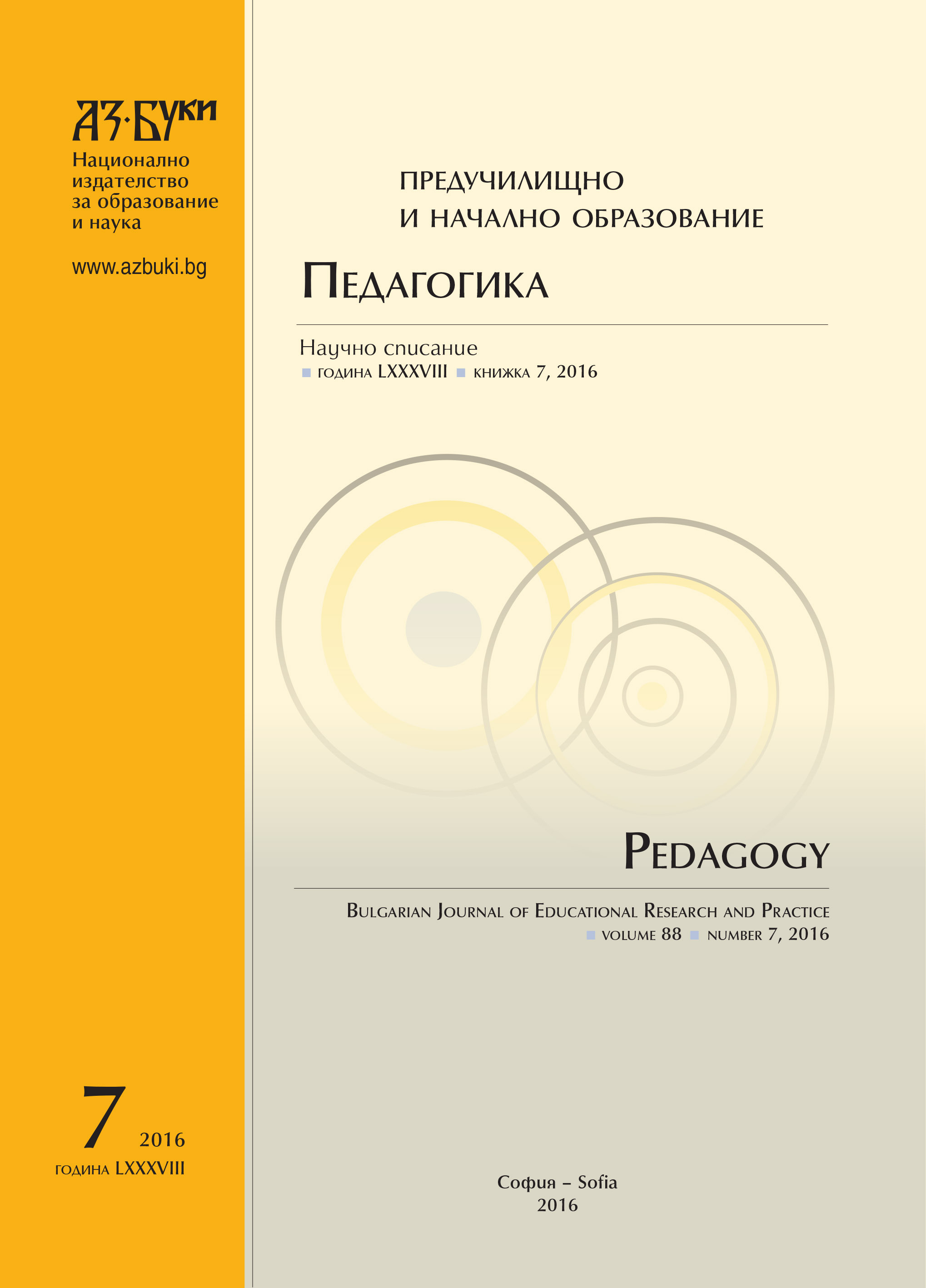Готовност за включване на образованието в „свързания свят“
Bulgarian Schools Readiness to the Inclusion in the “Connected Word”
Author(s): Olya HarizanovaSubject(s): Social Sciences, Economy, Education, Education and training, Sociology, School education, Vocational Education, Educational Psychology, State/Government and Education, Social development, Social differentiation, Family and social welfare, Economic development, ICT Information and Communications Technologies, Inclusive Education / Inclusion
Published by: Национално издателство за образование и наука „Аз-буки“
Keywords: ICT in schools; digital development; digital divide
Summary/Abstract: The paper analyses Bulgarian schools’ readiness to respond to the recent information society’s challenges. It is based on the data from a survey of teachers who participated in seminars under the project ‘’Promoting Excellence in Teaching and Research in EU Studies at Primary and Secondary School Level through Digital and Virtualisation Tools (EU PETR)”. The respondents were asked to answer questions related to: (1) the frequency of using electronic resources; (2) the most frequently used instructional e-resources, and (3) the most frequently applied e-resources by them. The analysis is based on the assumption that the ICT situation of the schools in the country has a key significance for Bulgarian development in the era of mass mobile communications and services, increasing e-business and cloud-based applications, the Internet of Things (IoT) and the Internet for All. Today it is not enough to have access to a computer and internet; the most important thing is to be information literate and acculturated (to have knowledge of computer systems, cyberspace, to work with information resources, to observe the rules of conduct in the virtual environment, etc.). In a world where information is the key resource for development, and people/consumers create virtual communities (which are characterized with a purposeful use of ICT), the lack of information culture guarantees “digital slavery”. It is prognosticated that the tendency for connectivity among information technologies, artificial and natural systems, people and man-made parallel virtual words will be reinforced in the near future. At the same time, analysis results show evidence of a digital gap in our educational system. Bulgarian schools seem digitally disadvantaged for the ICT world challenges and are apparently unable to meet the real practical needs. As a result, there is a significant contradiction between public expectations and Bulgarian schools’ ability to respond to the new ICT tasks with state-of-the-art instruments.
Journal: Педагогика
- Issue Year: 88/2016
- Issue No: 7
- Page Range: 918-927
- Page Count: 10
- Language: Bulgarian
- Content File-PDF

